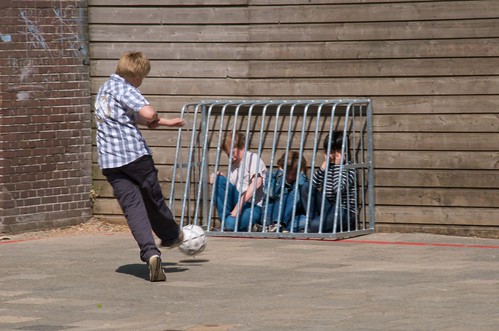Let’s face it — being a school counselor is tougher than it looks. Although many school counselors go to school so they can help people, it can be hard to know what initiatives are the right ones to take when dealing with a multitude of problems. So how do you find your way through this maze of challenges as a school counselor? Read on for four tips to help you overcome common issues any school counselor might face.
Bullying in Schools

Image via Flickr by trix0r
Bullying is one of the many things a school counselor will face. Children are new to social behavior, and as such, the students don’t know how to react to bullies. In fact, research shows that nine out of ten elementary students have been bullied by their classmates, while six out of ten admit being a bully at some point themselves. If bullying gets bad enough, oftentimes a child will not want to attend school.
It’s a counselor’s job to stop bullying in its tracks by giving children the tools to cope. The bully is not also to be forgotten about, as he or she may need the most help, and the reason needs to be assessed to be halted.
Suicidal Threats
While bullying is one of the most common problems counselors face, suicidal threats can be the scariest. One of the most common mistakes counselors make when confronting children who are rumored to have made suicidal threats is accepting their first answer and the truth. Many students will say they have not thought of hurting themselves even if they have, because they are ashamed or embarrassed.
Sitting a student down and talking with them about their feelings can help, as can informing parties that may need to get involved. Research says that 80 percent of people who kill themselves tell someone about their plan in the week prior to their death. Suicidal threats are not to be brushed off or taken lightly. Counselors must create realistic treatment goals and develop a network of possible resources to ensure the student’s safety.
Home Issues
If a student is having problems at home, it’s a sure thing they will leak into their school-life, whether academically, socially, or emotionally. Whether it’s a divorce of a parent, or stress between siblings, the counselor’s expertise and time with a student regarding family matters can transform a student’s school-life. Although confidentiality is key to building trust, sometimes it’s necessary to contact parents about matters of family urgency.
Substance Abuse
Don’t be surprised to learn that students often come to their counselors with a question about alcohol or other drugs. During adolescence, many teens find themselves in situations where they’re peer-pressured into trying illegal substances. One of the more rewarding parts of a degree in counseling comes when you can help stop a teen from developing life-threatening addictions.
There are usually programs put in place by the schools to deal with substance abuse, but it’s a counselor’s job to see that students follow this regime.
School counselors confront a variety of issues daily, and it’s important to assess each issue with painstaking care and focus. Although these issues may feel commonplace in a school setting, counseling can prove to be beneficial to many, and could even save a life.
For those who are interested in helping students of all ages cope with their struggles in healthy ways, Wake Forest University’s Online Master of Arts in Counseling provides students with the training necessary to make a difference in students’ lives.
Recommended Reading
The Role of a School Counselor After a School Shooting
What’s the Difference: School Counselor vs. School Psychologist?
Do “Trigger Warnings” on School Campuses Help? Counselors and Students Weigh In
Sources
Teachnology, The Common Problems School Guidance Counselors Come Across
Counseling Today, Confronting the Threat of Suicide
